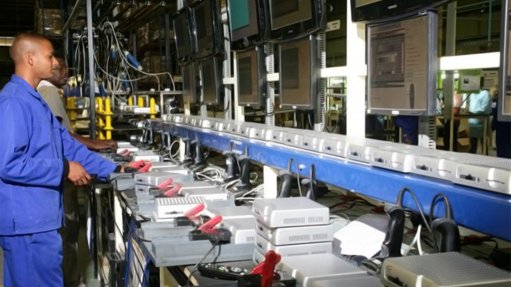
The South African Communications Forum (SACF) on Friday said delays in South Africa’s transition to digital television has cost the industry millions, stressing that further delays on the back of the much-debated removal of conditional access for set-top boxes (STBs) would lead to further losses.
The four-year delay in the commercial migration to digital terrestrial television (DTT) had resulted in collective losses exceeding R50-million for the South African STB manufacturing industry.
The scrapping of the conditional control access system, as called for by the Black Business Council (BBC) and the National Association of Manufacturers in Electronic Components (Namec), would cause another six- to nine-month delay in the migration to DTT and monetary losses to industry.
“ … [the] removal [of condition control access] will require the reconvening of specific bodies, such as the South African Mheg5 project for the Mheg file implications [and] the same members of the TC74 and its working group under the South African Bureau of Standards (SABS) for the rewording of the STB specifications (SANS 862) to exclude the STB control system,” explained SACF CEO Loren Braithwaite-Kabosha.
The time and cost risks involved in revising the SABS standards for removing control access from STBs would lead to “even greater” losses.
Control access technologies have become an important component in supporting a sustainable electronic manufacturing base in South Africa – despite the BBC and Namec’s stance that it would stifle the nation’s electronic component manufacturing through high costs and certification requirements – and could promote industrial development, job creation, access to information and black economic empowerment (BEE), the forum pointed out.
“SACF has fully considered the BEE implications of implementing control access and has been an advocate for lowering the bar so that control access does not become a hindrance to emerging and new entrant manufacturers gaining experience in manufacturing STBs in South Africa,” Braithwaite-Kabosha noted.
She indicated that current STB manufacturers were operating at less than 40% capacity, and that eliminating conditional control access would open the local market to a flood of imports, which would be even more detrimental.
Conditional access would also protect all local STB manufacturers from dumping by cheap foreign vendors, which could lead to limited assembly being done in South Africa.
SACF engaged end-to-end digital media technologies group and current Sentech control access provider Nagra to lower the cost of certification from $200 000, to a one-off $85 000. Further, emerging manufacturers incorporating Nagra chip sets in their manufacturing processes, would not require certification.
The forum also countered Namec’s view that the inclusion of control access would increase the total cost of ownership of STBs by up to 43%, with the excess cost being passed on to consumers who were not being subsidised by government.
The organisation citied STB roll-out successes in Tanzania, which was far ahead of South Africa in implementing digital migration. The country was supplying – through South African empowered manufacturers – second-generation digital video broadcast transmission STBs with control access for about $40 a decoder.
“By using chip sets, these manufacturers did not have to be certified. The quantities ordered in Tanzania are much lower than those expected in South Africa, which means there can be an even further reduction in cost,” she elaborated.
“From a long-term perspective, without control access, the electronic industry manufacturers will not be able to use digital migration to create sustainable growth and, ultimately, thousands of jobs will be lost.”